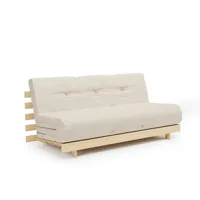The futon vs. mattress debate that has social media tossing and turning
Would you ditch a mattress for this traditional Japanese sleeping practice? Experts weigh in on the futon vs. mattress debate that has social media users losing sleep

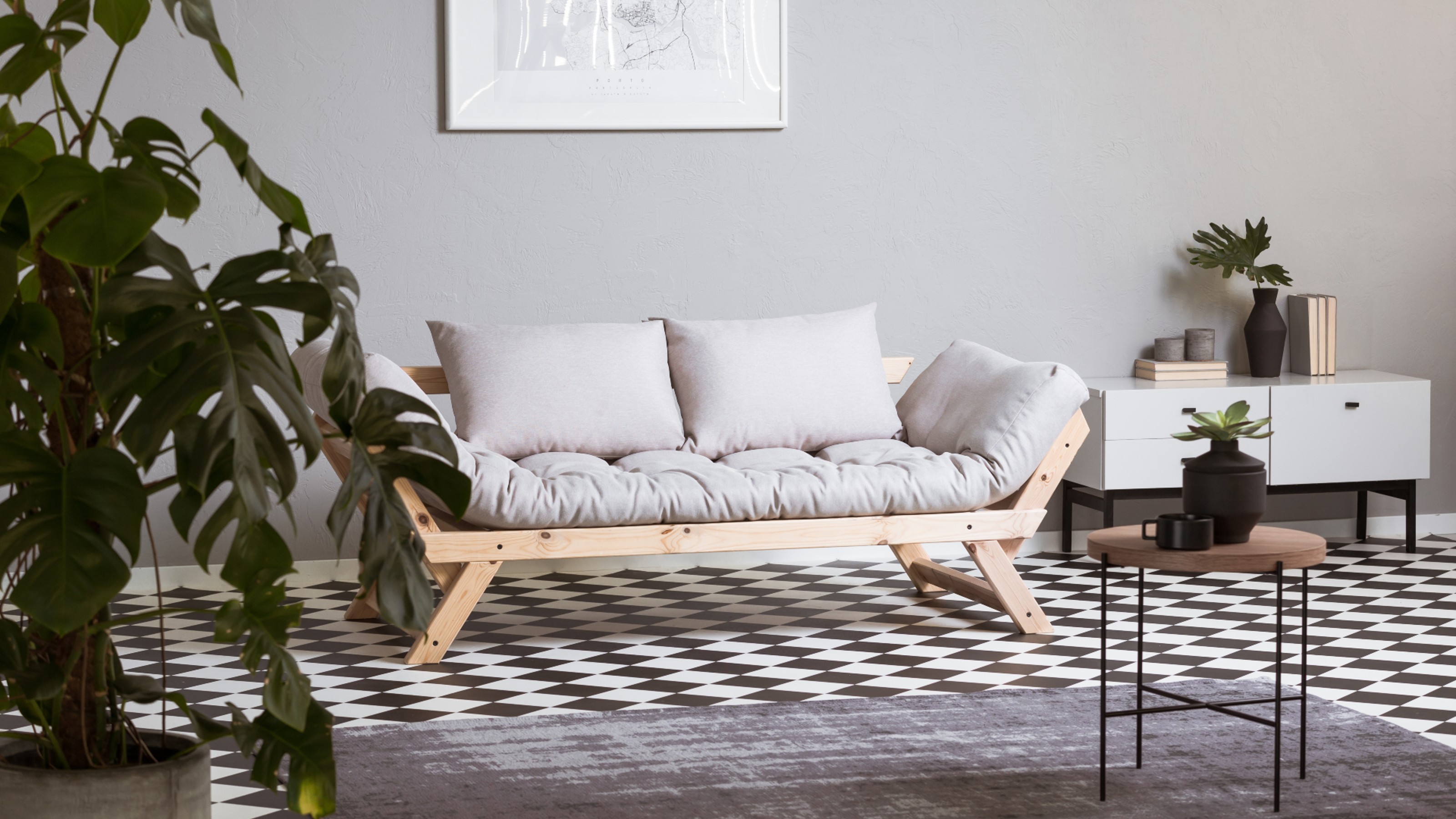
Is sleeping on a futon better than sleeping on a mattress on a bed? We ask the experts to weigh in on the futon vs mattress debate that's taking social media by storm.
It's pretty much standard that what you're sleeping on will affect your ability (or inability) to sleep better, and for many of us in Britain opting for the best mattress we can and then placing it on a bed frame is the status quo.
However, whilst mattresses come in many types, sizes, and firmness levels to suit all manner of preferences, some people opt to abandon the standard mattress altogether and take a different route; the futon.
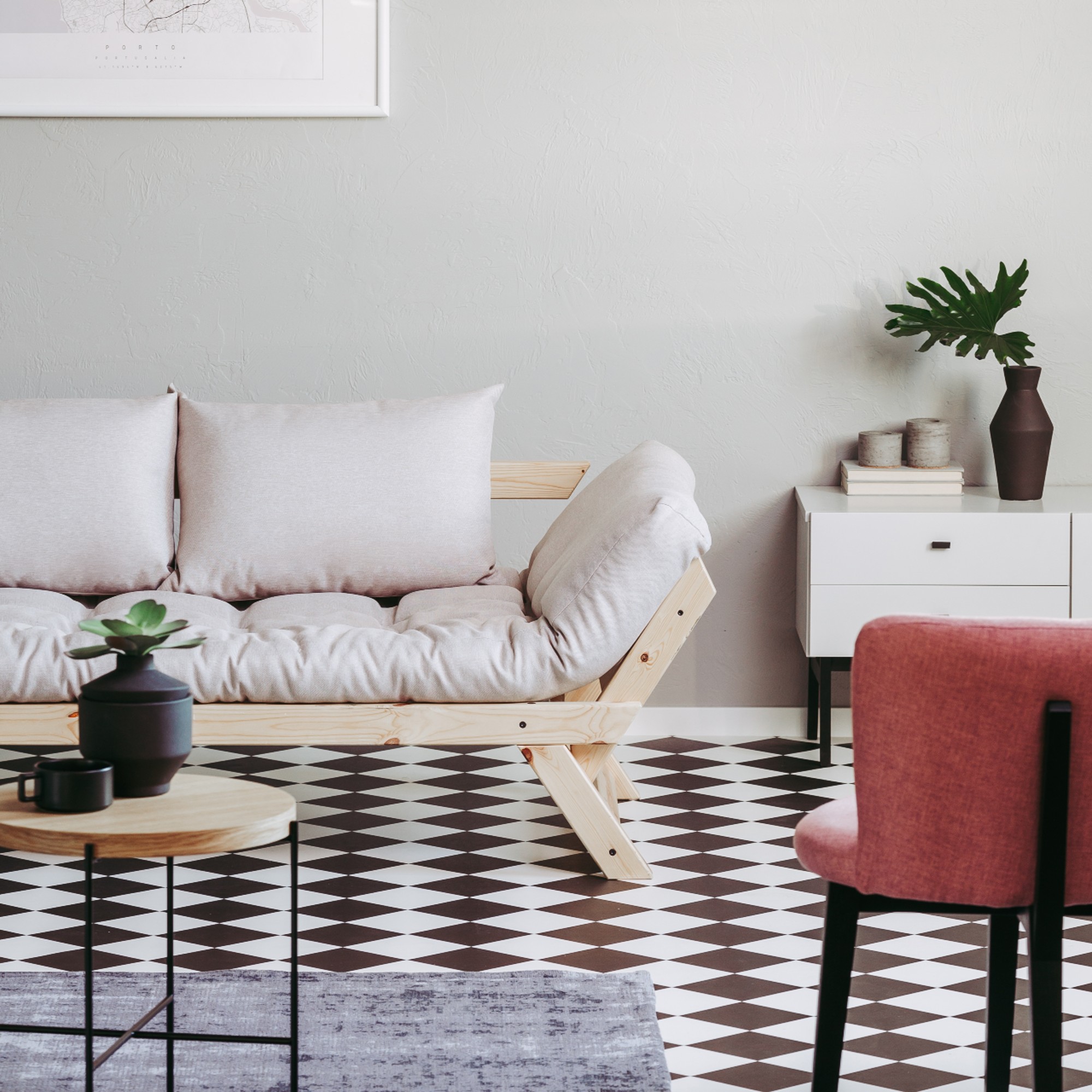
The futon vs mattress debate resurfaced in the Ideal Home office after I stumbled upon this viral tweet on Twitter. It highlighted how ditching the typical mattress and bedframe setup in exchange for a futon and tatami mat (a straw mat used as a flooring material in traditional Japanese-style rooms) had significantly helped this individual alleviate their back pain.
As of writing, this social media post has racked up over 8 million hits and garnered over 100,000 likes, so it wasn't just my interest that was piqued.
Speaking from my own experience – having spent a couple of my childhood years in the Philippines where it's standard practice to sleep on a banig (a traditional handwoven mat) – I can confirm that while sleeping on a firmer surface takes some getting used to, it works a charm for back pain.
But what do the experts have to say about it? Should you consider ditching your mattress for a futon?
Sign up to our newsletter for style inspiration, real homes, project and garden advice and shopping know-how

Sleeping on a futon: the pros and cons
In Britain, we're probably most familiar with a futon being used within the home as an alternative to one of the best sofa beds (or their smaller counterpart, the compact chair bed). Used in this way a futon allows you to host overnight guests even if you don't have a guest bedroom. Instead a futon can be laid out on the floor, even in a small living room, to create extra sleeping space.
The Japanese-style of futon though? Where the futon is placed on the floor in the bedroom as the main sleeping surface? That probably isn't so common considering that the majority of people in the UK are more than likely accustomed to using a typical mattress on a bed.
That's why I asked two sleep experts to weigh in on the pros and cons of this traditional Japanese sleeping practice.

Sammy Margo has been a Chartered Physiotherapist for 32 years and specialises in sleep. She completed her Chartered Physiotherapy training and a Masters in Physiotherapy (MSc) at University College and Middlesex Hospital. Now as the founder of The Good Sleep Expert, she brings her expertise to The Dreams Sleep Matters Club.

Chris Tattersall is a Sleep Environment Expert and has been developing and selling sleep-related products since 1997. Since 2012, Chris has been Managing Director of Woolroom. Focused on the often-forgotten area of the sleep environment, Chris is passionate about highlighting the holistic sleep environment and the importance of what we sleep on, under and in, by raising awareness about how certain fibre types can impact our sleep.
'Futons, particularly the traditional Japanese-style futons, tend to provide a firmer support compared to conventional mattresses which is why some people try this to help with back pain,' explains Sammy Margo, sleep expert at Dreams.
Chris Tattersall, sleep expert and MD at Woolroom adds, 'Having a firm foundation for your sleep environment has been known to produce results, such as improved back pain, hence the idea that 'a hard bed is good for the spine'.'
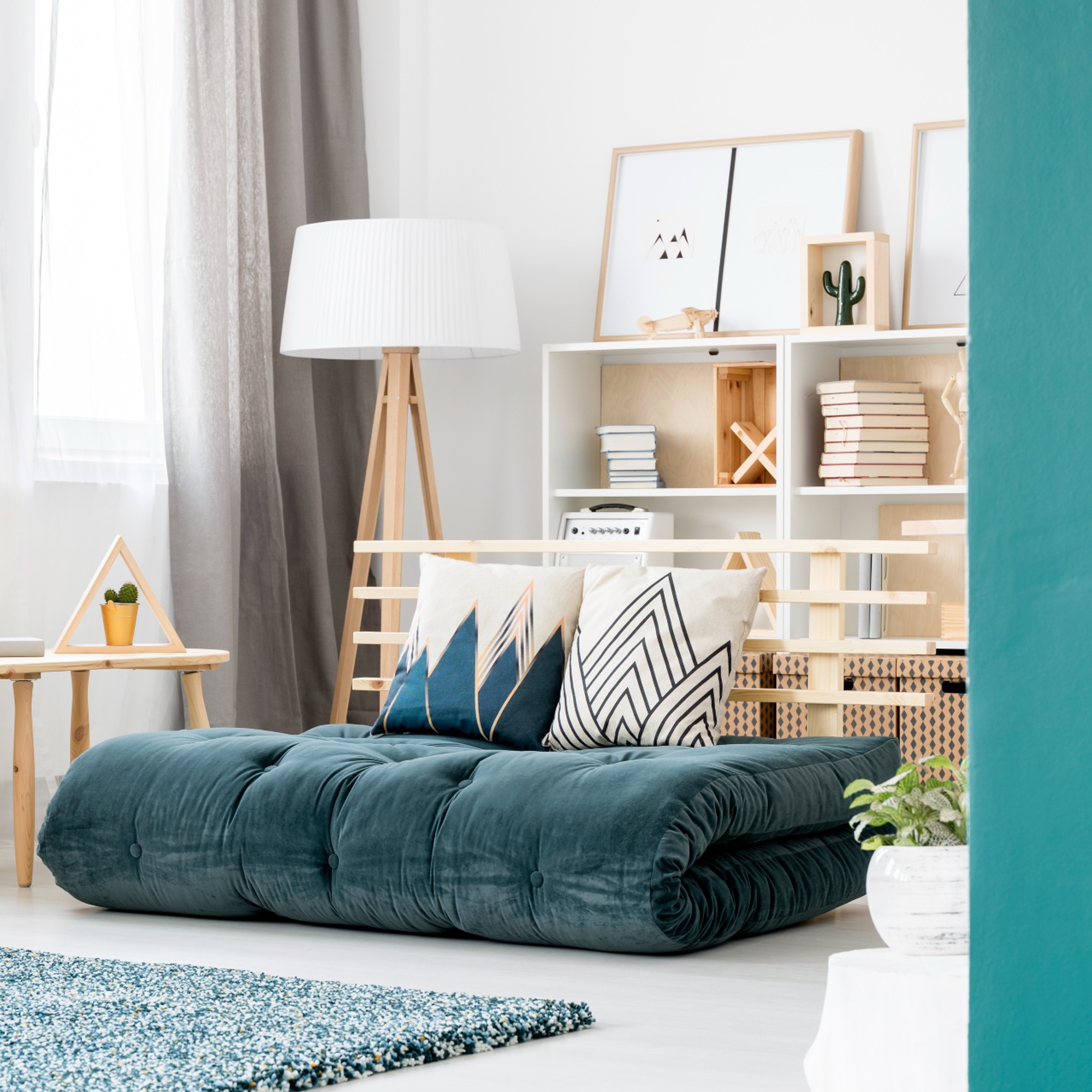
Our Deputy Digital Editor, Rebecca Knight, agrees, after growing up in a family home where futons were a regular feature. 'My family has always opted for futon sofa beds and stocked up on them for when we had sleepovers as kids', she says. 'While I'm not sure I'd want to sleep on one full-time, the futon sofa bed is up there with the comfiest I've slept on, it even beats my MADE.COM Haru sofa bed'.
'Futons are on the firm side, so don't expect it to feel like sleeping on a cloud. But I'm always amazed how quickly I drift off on them and wake up without any aches.'
Mito Double Futon | £209.00 at Dunelm
This handy and versatile futon is the perfect addition to any modern home, sporting a timeless design that'll complement your living space, not to mention, a great space-saving solution.
However, while all that is well and good, the experts also argue the other side of the coin.
'The key principle that prompts results is that the mattress/futon needs to be malleable and supportive enough to ensure that there is 'give' around hips and shoulders, as this allows for support in between, ensuring that the spine is maintained at a horizontal level', explains Chris Tattersall at Woolroom.
'When sleeping on a futon or tatami, which are thin and traditionally placed on the floor, you lose some of the 'give' versus a thicker, traditional mattress'.
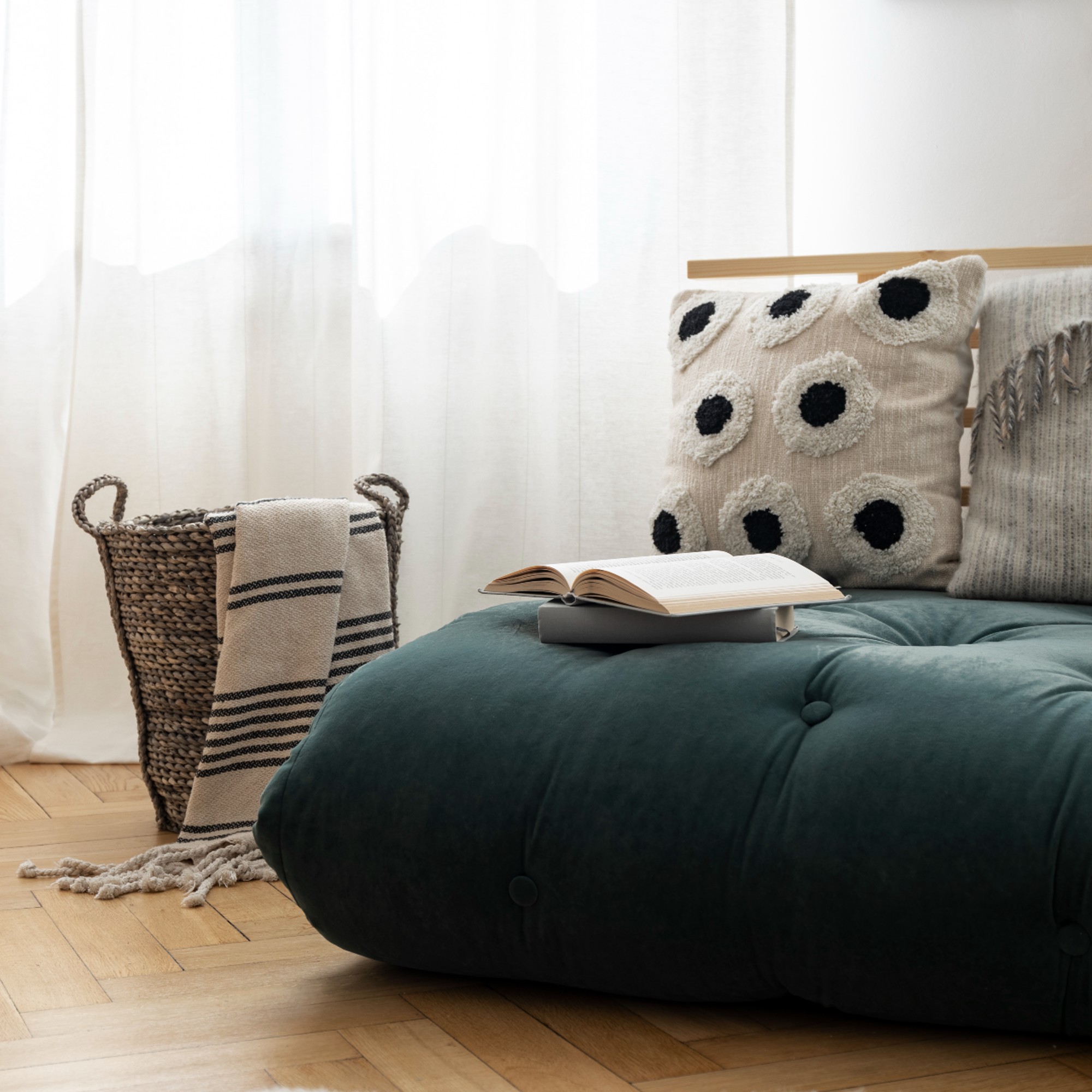
Additionally, we should not forget that comfort plays a significant role in sleep quality.
Sammy Margo at Dreams adds, 'A futon could lead to excessive pressure on certain areas of the body including the knees, shoulders, and hips because it is so firm, unlike a softer mattress which tends to distribute body weight more evenly. Discomfort can also lead to disturbed sleep so individuals with joint problems may find it more challenging to sleep on something as firm as a futon.'
Ideal Home's Sleep Editor, Amy Lockwood, agrees, saying 'if you're a side sleeper I imagine you might struggle with a firm futon, as there's less cushioning for shoulders and hips to sink into when you're laid on your side. That's why super cushioned memory foam mattresses are so popular with side sleepers'.
'However, I imagine a futon would suit front or back sleepers well. Personally I'm always impressed by how quickly my body adapts to a firmer sleeper surface when I go camping and don't have the luxury of a pocket sprung mattress or a bed frame for a few nights'.
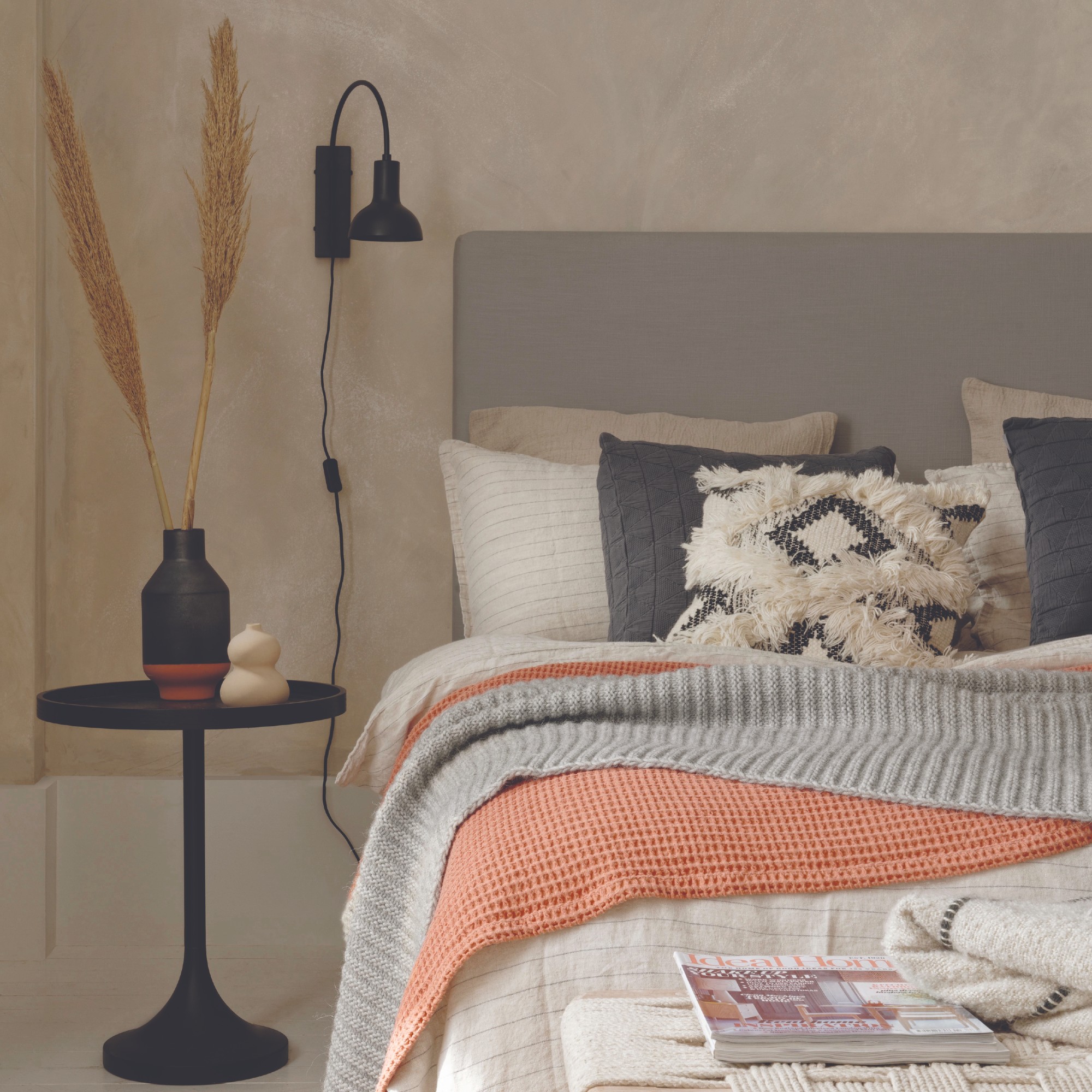
Ultimately, whether you choose to stick to your typical mattress or make the switch over to a futon is all dependent on your sleep preferences and your needs. And if you prefer to figure out where to buy a bed than where to place a futon on your bedroom floor, then that's a perfectly sound approach.
As Dreams' Sammy Margo says, 'Not one size fits all – the position you sleep in, your weight and size are all factors that can impact what kind of support you need from a bed. Some people find futons too firm, so I'd always recommend that you try out a futon before making a long-term commitment'.
After all, as Sammy concludes, 'The ultimate bed is the optimal marriage between comfort and support'. I couldn't agree more.

Jullia was Ideal Home’s Junior Writer from 2022-2024 and the Ideal Home Certified Expert in Training on Vacuums having spent over 60 hours testing different models. She’s always loved all things homes and interiors, graduating with a bachelor’s degree in Architectural Studies from the University of Nottingham where her love for writing blossomed following her internship at ArchDaily. Now focused on home tech and cleaning, Jullia works on writing features and explainers to help people make the most of their home appliance investments, putting the newest launches through their paces. When she isn’t writing, she loves exploring the city, coffee shop hopping, and losing hours to a cosy game or book.
